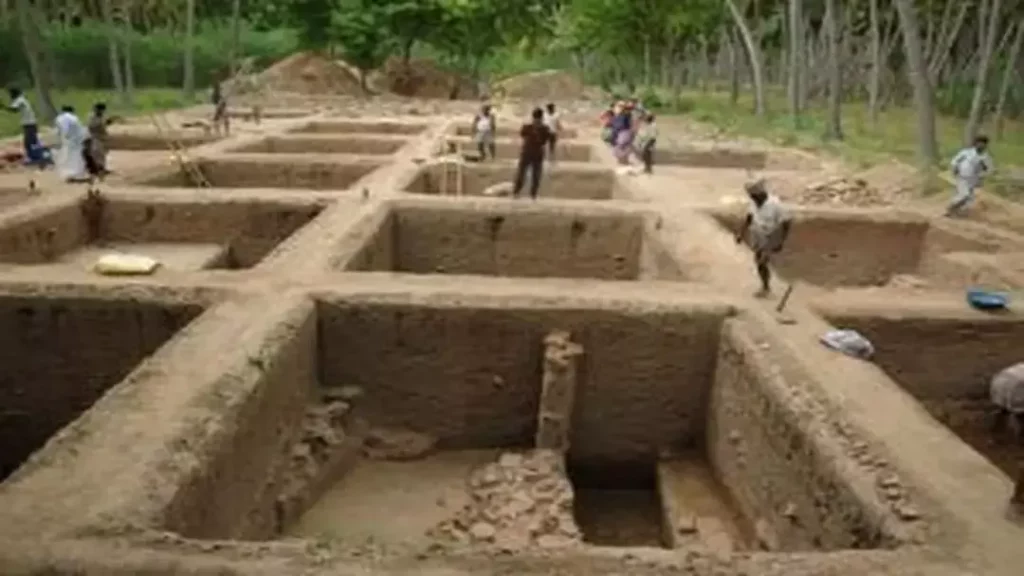
TN CM Stalin Slams Archaeologist Amarnath Ramakrishna’s Transfer: Accuses Centre of Anti-Tamil Bias
In a strongly worded statement, Tamil Nadu Chief Minister MK Stalin has slammed the central government’s decision to transfer K Amarnath Ramakrishna, the archaeologist who led the Keezhadi excavations in Tamil Nadu, to Noida. The move has been criticized by many as an attempt to undermine the significance of the Keezhadi findings, which have far-reaching implications for the history and heritage of Tamil Nadu.
On Tuesday, 17 June, Stalin took to social media to express his outrage and disappointment at the transfer. In a post on X, he accused the Centre of anti-Tamil bias, saying that some minds need correction. “How many obstacles do our Tamil nation face?” he asked, emphasizing the need for the Centre to understand and respect the cultural and historical heritage of Tamil Nadu.
The transfer of Ramakrishna, a renowned archaeologist and expert in Indus Valley Civilization, has sparked widespread concern and outrage among scholars, historians, and the general public in Tamil Nadu. The Keezhadi excavations, which were conducted under Ramakrishna’s leadership, have yielded significant findings that have shed new light on the history of Tamil Nadu and the Indus Valley Civilization.
The excavations, which began in 2005, uncovered a vast array of artifacts, including pottery, beads, and coins, that date back to the 6th century BCE. The findings have been hailed as a major breakthrough in the field of archaeology, providing evidence of a previously unknown civilization that thrived in Tamil Nadu.
Ramakrishna’s work on the Keezhadi excavations has been instrumental in shedding light on the history and culture of Tamil Nadu, and his transfer has been seen as a deliberate attempt to undermine the significance of the findings. Many have accused the Centre of trying to erase the cultural and historical identity of Tamil Nadu, and Stalin’s statement has been seen as a bold rebuke to the Centre’s actions.
Stalin’s statement has also been seen as a reflection of the deep-seated concerns and mistrust that many Tamils have towards the Centre. For years, the Centre has been accused of neglecting the cultural and historical heritage of Tamil Nadu, and Stalin’s statement has been seen as a call to action to defend the rights and interests of the Tamil people.
The Centre has not commented on the transfer or Stalin’s statement, but the move has been widely criticized by many in the academic and cultural communities. The transfer of Ramakrishna has been seen as a blow to the reputation of the Archaeological Survey of India (ASI), which is responsible for the management and preservation of India’s cultural and historical heritage.
In the face of mounting criticism, the ASI has been accused of trying to erase the significance of the Keezhadi findings and undermine the work of Ramakrishna and his team. Many have called for the Centre to reconsider the transfer and allow Ramakrishna to continue his work on the Keezhadi excavations.
The transfer of Ramakrishna has also been seen as a reflection of the Centre’s lack of understanding and respect for the cultural and historical heritage of Tamil Nadu. For years, the Centre has been accused of neglecting the cultural and historical identity of Tamil Nadu, and the transfer of Ramakrishna has been seen as a deliberate attempt to erase the cultural and historical identity of the state.
In conclusion, the transfer of K Amarnath Ramakrishna, the archaeologist who led the Keezhadi excavations in Tamil Nadu, to Noida has sparked widespread outrage and concern among scholars, historians, and the general public in Tamil Nadu. Stalin’s statement has been seen as a bold rebuke to the Centre’s actions, and many have called for the Centre to reconsider the transfer and allow Ramakrishna to continue his work on the Keezhadi excavations.
As the debate continues to rage on, one thing is clear: the transfer of Ramakrishna is a blow to the cultural and historical heritage of Tamil Nadu, and a reflection of the Centre’s lack of understanding and respect for the cultural and historical identity of the state.






